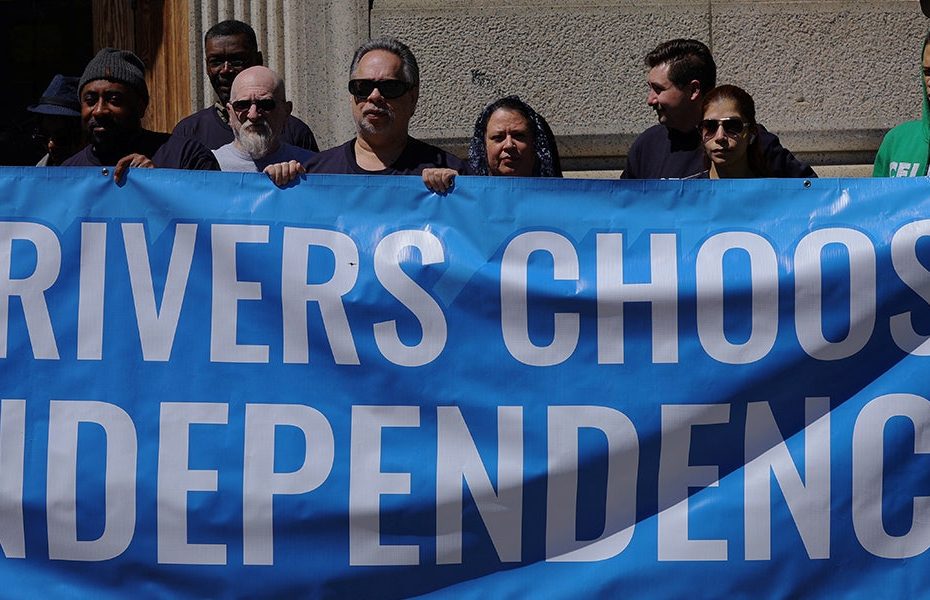The California Supreme Court ruled unanimously on Thursday that drivers for app-based companies including Uber, Lyft and DoorDash remain independent contractors, as opposed to employees. The decision, which upheld a state statute called Proposition 22, was hailed as a major victory for gig economy companies.
The question of whether drivers for the companies should be treated as employees or contractors has sparked a years-long legal battle in the state. In 2020, California voters approved Proposition 22, which allows app-based companies to continue treating their workers as independent contractors. That vote reversed an earlier court ruling that such companies had too much control over their drivers’ working conditions to treat them as contractors. The campaign for the ballot measure cost its proponents, which included Uber, Lyft, Postmates, Instacart and DoorDash, about $200 million, breaking state records for spending.
Driver advocates have long argued that people behind the wheel deserve the same kinds of benefits as full-time workers, including health care, sick pay and workers’ compensation. The companies have said that gig work is an entirely new and flexible form of employment, and that treating drivers as employees would transform their businesses. A 2020 analysis suggested that treating drivers as employees in California would cost Uber and Lyft nearly $800 million annually in payroll taxes and benefits alone.
The 2020 ballot measure required the app companies to set a minimum wage, at a minimum, for the time drivers spend in the car with passengers, and to pay health benefits to workers who drive enough hours each month.
“Today’s decision should bring justice, affirm that even as workers controlled by apps on our phones, by algorithms, by AI, we are indeed workers with robot managers,” Nicole Moore, president of Rideshare Drivers United and a part-time driver in Los Angeles, said at a briefing with reporters after the decision. “And we deserve the same rights and benefits as every other worker in our state. But that didn’t happen today.” Moore called on state lawmakers to find a “creative path” to ensure drivers are protected and paid fairly.
In a statement, Uber said the ruling “put an end to misguided efforts to [drivers] in a labor model they overwhelmingly do not want.” Lyft also praised the decision: “We’re excited to bring Californians closer to their friends, family, and neighbors and provide drivers with access to flexible earning opportunities and benefits while preserving their independence.”
During a call with reporters organized by Proposition 22 supporters, some drivers said they were glad the app-based companies would retain their flexibility. “I’m just so grateful right now,” said driver Stephanie Whitfield, who works in the Coachella Valley.
The ruling doesn’t directly affect gig worker laws in other states, but it could influence policies elsewhere. Minnesota and Colorado both recently passed laws setting higher wage standards for app-based drivers, but neither has resolved whether workers should be treated as contractors or employees. The Biden administration has taken aim at the misclassification of gig economy workers with new labor rules, though app-based companies say those rules don’t affect their businesses.

